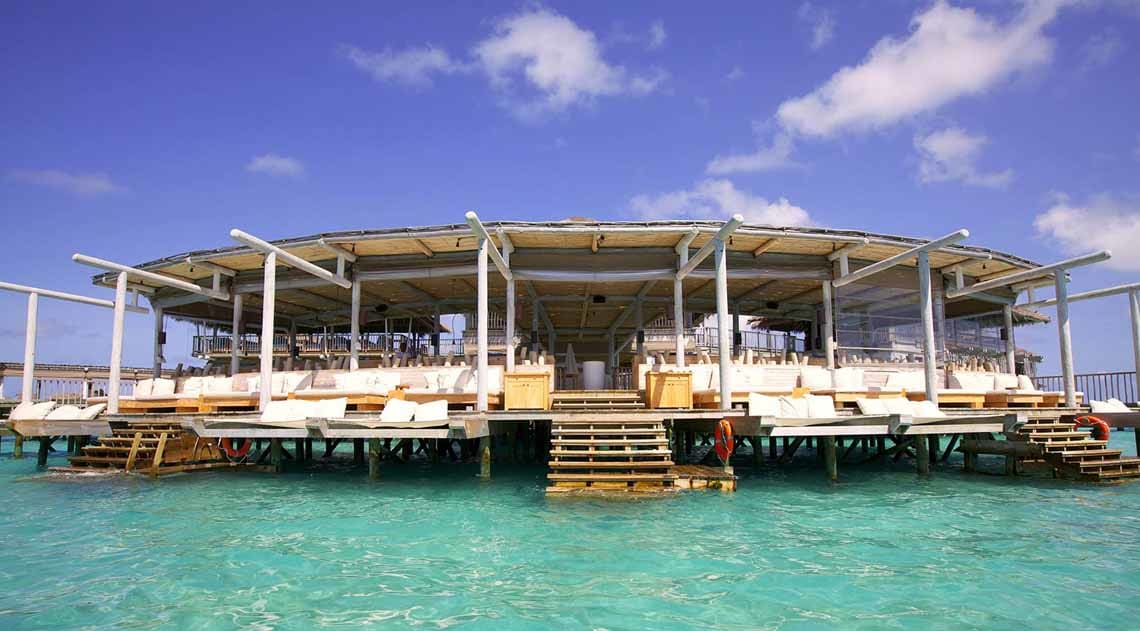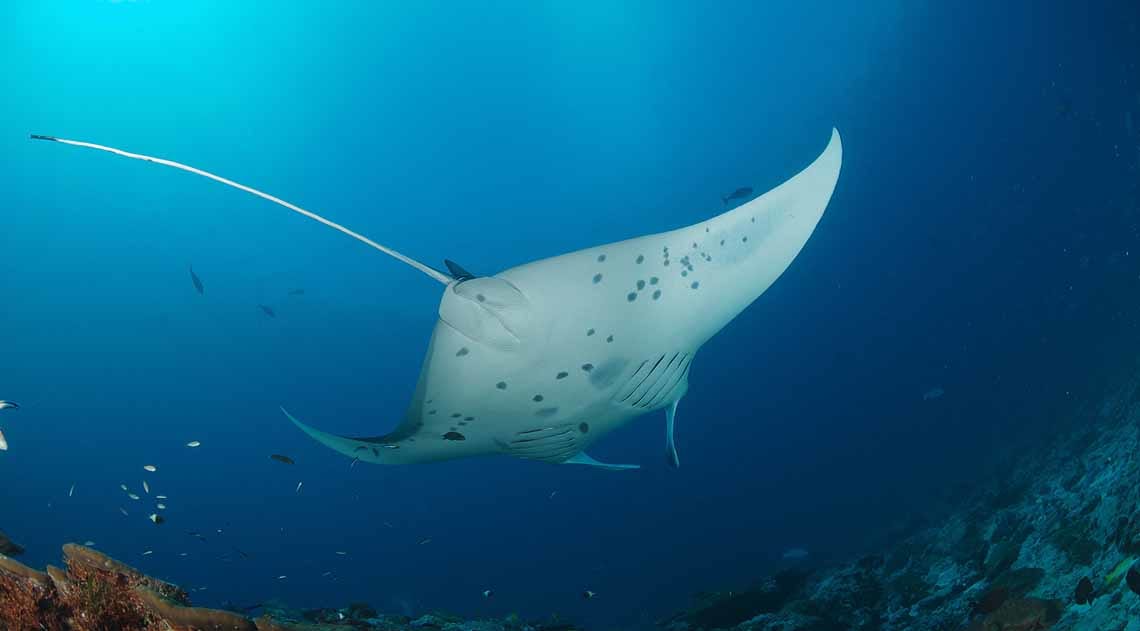The waters around Six Senses Laamu offer you snorkelling, diving, surfing and sailing, but what does the ocean ask in return?
Fortunately, Six Senses invests time, expertise and planning to make sure that this gem of an island and its surrounding ocean, continues to thrive. We’ll be looking at the fabulous opportunities offered here and why we can relax in the knowledge that our stay has not had a detrimental effect on its nature.
House reef - snorkelling
Snorkelling around Six Senses Laamu is exceptional; the reef surrounding is spectacular, healthy and alive with a stunning coral garden just a few metres from the beach. You are welcome to borrow snorkel, mask and fins from the dive centre – Ocean Dimensions - and snorkel around the house reef to your heart’s content; you’ll probably find ticking species off your list an addictive pastime! It is not unusual to spot turtles, reef sharks and endearing clownfish here. Regular excursions are also available to other sites where even more fish can be spotted.
Scuba Diving – first time
The only downside to diving in the Maldives as a first-timer is that the bar will be set so high you may not want to dive anywhere else! The warm waters, the outstanding marine variety and the uncrowded tranquillity will quite simply ruin you - so beware! Children as young as 8 can learn with the PADI Bubblemaker program whilst 10-year olds can progress to the open-age Discover Scuba Diving program which takes just 2 hours and will result in your very first dip under the water. For this purpose the superb house reef is ideal.
Around the Laamu Atoll
The shape of the Atoll itself has led to the formation of several wonderful reefs which have remained healthy and intact due in part to their remote location. Take a ten minute boat ride from the resort and you will arrive at the legendary Manta Point where the magnificent Manta Rays come for their cleaning sessions. Also seen at Hithadhoo are giant barracudas, turtles, huge potato groupers, napoleon wrasse, Jenkins Rays, eagle rays and many more.
Never hurt the one you love
Although Laamu is reached in around 45-60 minutes by flight and speedboat from Male, it is still relatively remote. With this in its favour, Laamu enjoys a greater degree of peace than some other regions and less interference from humans. Echoing the mantra ‘harmony with nature’, the island’s flora and fauna along with the biologically diverse reef is considered best left to its own devices wherever possible. Naturally, when you introduce a luxury hotel into the equation there has to be a redress of the balance.
Turtle nesting
If you visit between May and September you may need to keep an eye out around your villa for turtle nests! Once identified, these nests are protected with a net and a signboard to keep them safe – a program which the resort is fully committed to and is delighted to share with its guests. For those lucky enough be resident at hatching time – between July and October – there is an opportunity to watch eggs open, releasing tiny turtles sprinting to the sea! This is surely one of the most heart-warming of all natural, new-life events to witness and one that the resort’s Marine Biologist along with the Experience Team will keep you informed of.
Ethical build
During its construction, Six Senses Laamu’s buildings were designed to have minimal impact on the island and surrounding lagoon. Branches were cut in a carefully controlled manner with old plant matter allowed to decompose. A horticulturalist was taken on to enhance the green footprint of the resort and he addresses garden productivity and waste management with simple measures that make a big difference, such as only using fallen flowers for decoration.
Resident Marine Biologist
The resort’s resident Marine Biologist helps to advise and educate the resort staff and guests about the coral reef ecosystem and the importance of responsible behaviour when interacting in the ocean. As a guest you will be given valuable guidance on how to enjoy yourself without endangering the marine life or the delicate reef; a collection of seemingly small but essential practices such as:
- A healthy reef is essential for the proliferation of fishes so mooring buoys have been installed to avoid anchor damage
- Night fishing activities are avoided
- Guests are discouraged from feeding wildlife and fish
- Encouraging guests not to remove shells, coral pieces and sand from the beach or reef
- There are no shells or coral animal products sold in the resort shop
Dolphin Watching
It is a dream for many of us to swim with wild dolphins, however this activity attracts plenty of unscrupulous operators in the world’s oceans. Six Senses Laamu is the first resort in the Maldives to implement a Code of Conduct for dolphin watching in order to protect both local spinner and bottlenose dolphins, ensuring that their populations are undisturbed. We are convinced that Destinology holidaymakers are keen to see this type of sustainable tourism upheld everywhere and will enjoy their dolphin watching all the more knowing that this code is in place. The main guidelines dictate that:
- Boats keep distance of at least 50 metres
- Dolphins are not approached head-on or from directly behind
- Dolphins are permitted to choose whether or not to approach the boat
- Boats maintain predictable speeds and direction
- Travel at a maximum of 6 knots when within 150 metres
- Boats must not chase, cut-off or separate mothers and calves
Spinner and bottlenose dolphins
Travelling on a Six Senses dolphin watching trip will treat you to a wonderful natural display from the fun-loving spinner dolphins recognised by their acrobatics and aerial twisting out of the water – up to five and a half spins in one leap! The larger charismatic and intelligent bottlenose dolphins have an endearing facial expression with a curved mouth that resembles a human smile. They can travel at over 18 miles an hour and communicate with each other by a complex system of squeaks and whistles; their high intellect fuels their curiosity in their human audience making interaction with them incredibly rewarding.
We’re sure that you will want future generations to have wonderful holidays, exploring the ocean just as you have done. This is totally possible if we take control now and demand sustainable tourism. Live, let live, have fun!












